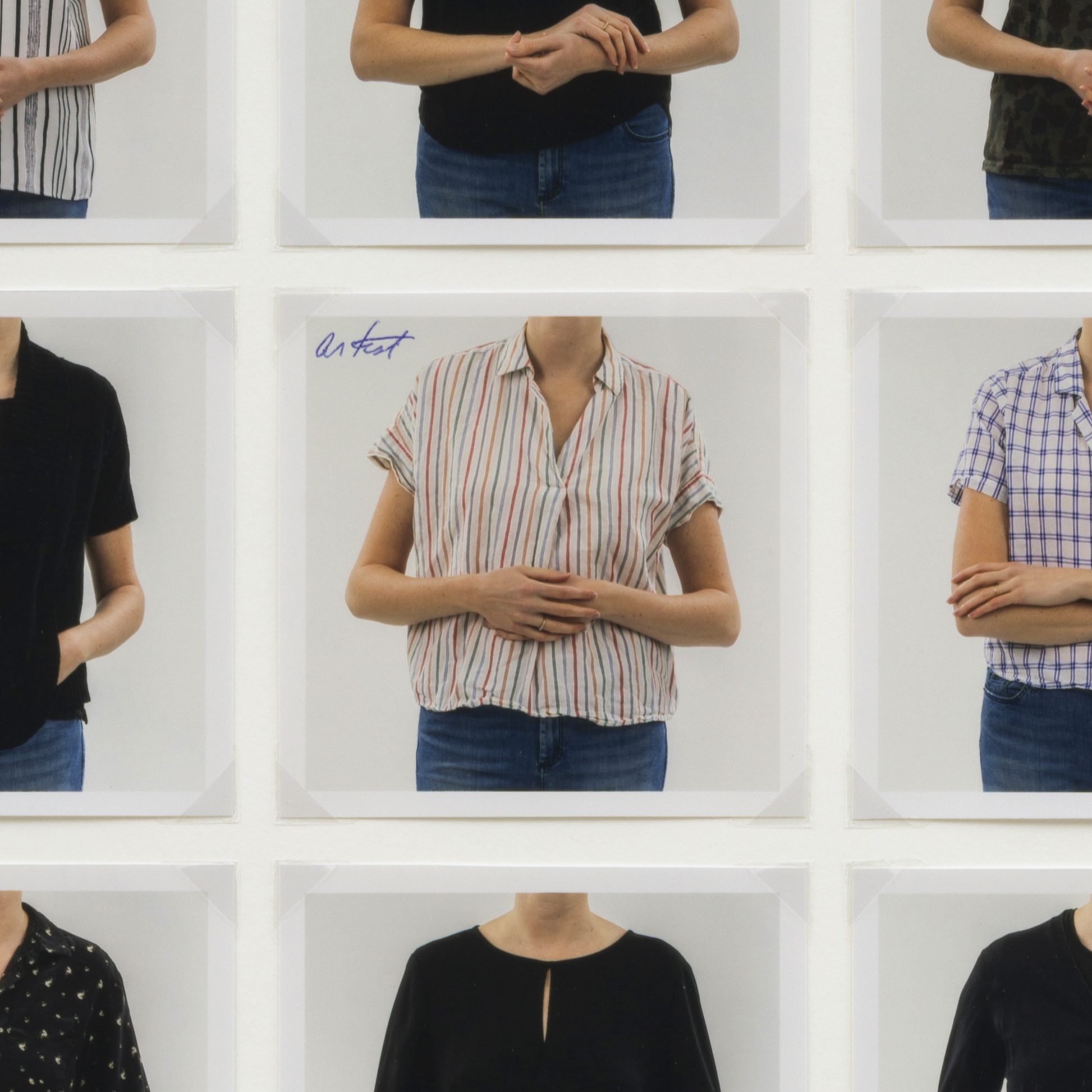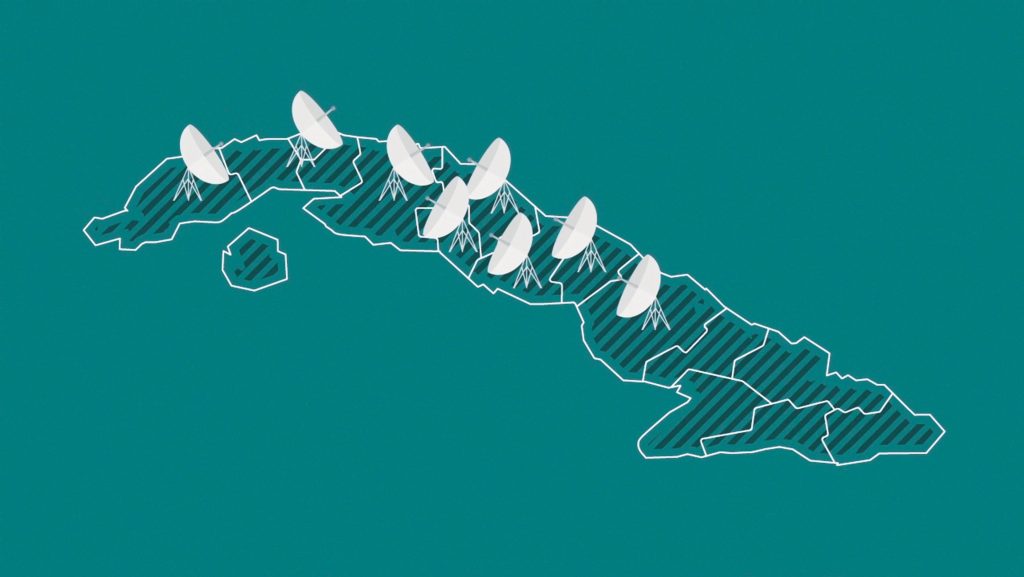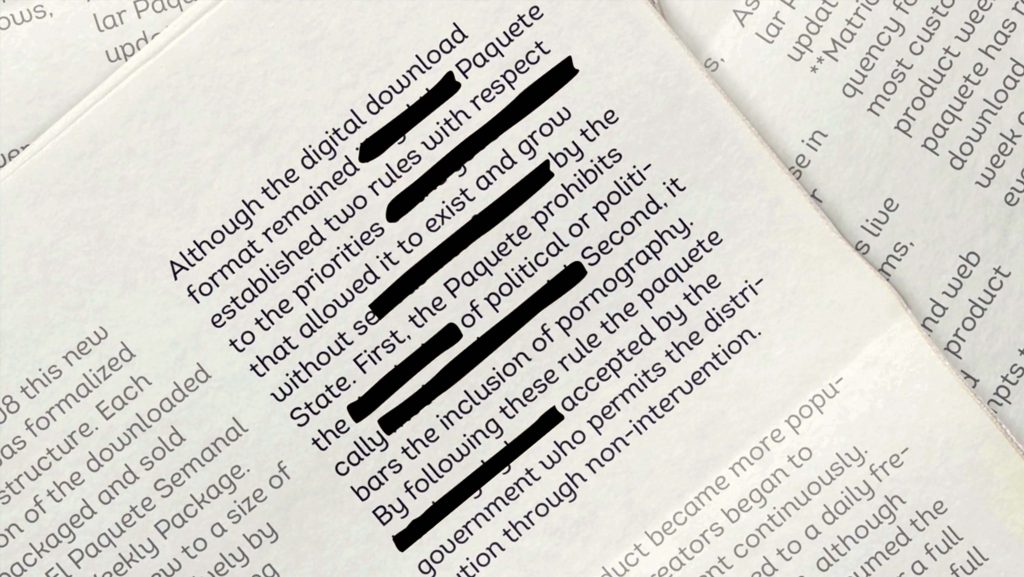
17.(SEPT) [By WeistSiréPC]™
American artist Julia Weist and Cuban artist Nestor Siré explore creative social strategies surrounding connectivity in Cuba, where a majority of the population has little to no internet access. Their projects capture and contextualizes the most significant of these phenomena, El Paquete Semanal or “the weekly package,” a one-terabyte digital media collection newly aggregated every week and circulated across the country via in-person file sharing. The distribution of this offline content—largely entertainment material, strictly excluding pornography and politics—has roots in Cuba’s underground systems that date to the 1970s. Since the late 2000s it has developed into a full-blown industry that reaches nearly every Cuban national.
Weist, trained in information science with special interests in systems of knowledge and circulation, and Siré, creator of the monthly Paquete folder !!!Sección A R T E (!!!A R T Section), with close familial connections to Cuba’s earlier media distribution systems, have mined and married their respective contexts and viewpoints to create a series of works that are both for and about the Paquete industry. Their ambitious collaboration was forged within the often ad-hoc societal structures of Cuba, and the changing legal and logistical restrictions on US-Cuba relations.
One of the outcomes of Weist and Sire’s partnership is a fifty-two week archive of El Paquete Semanal, a singular collection of the otherwise ephemeral Paquete data. The artists have made media from this archive available in multiple ways: in a fully accessible database; at a Paquete copy station of materials for which the artists have secured the rights to legally distribute in the U.S.; in video compilations and graphic applications.
Weist and Siré present an unprecedented, expansive image of El Paquete Semanal’s formative conditions and its impact on Cuban society and culture today. The project simultaneously illuminates the forces that shape our own perspectives, as it weaves through U.S. and Cuba’s contrasting political, geographic, economic, technological, and cultural circuits.
—Queens Museum, September 2017


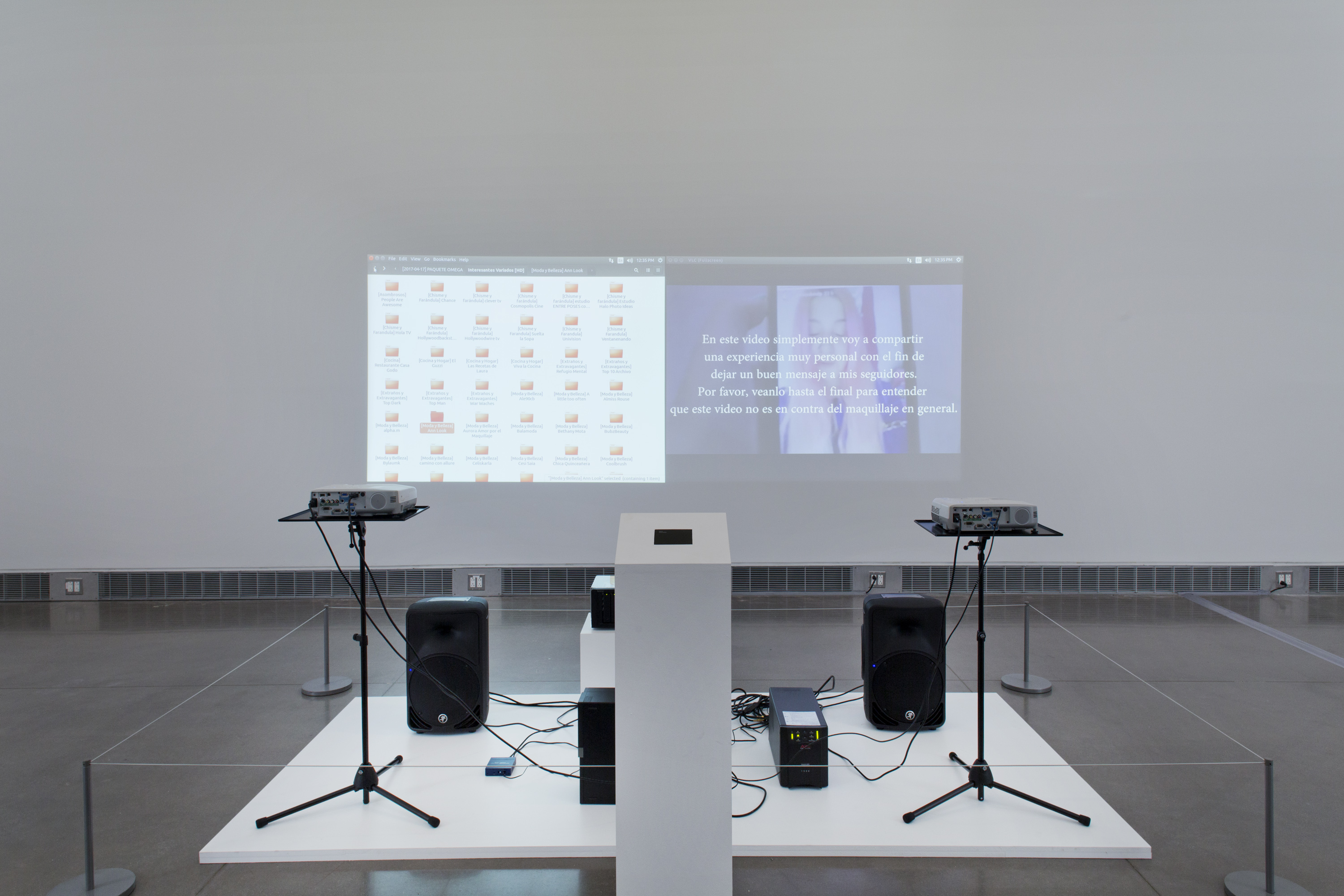
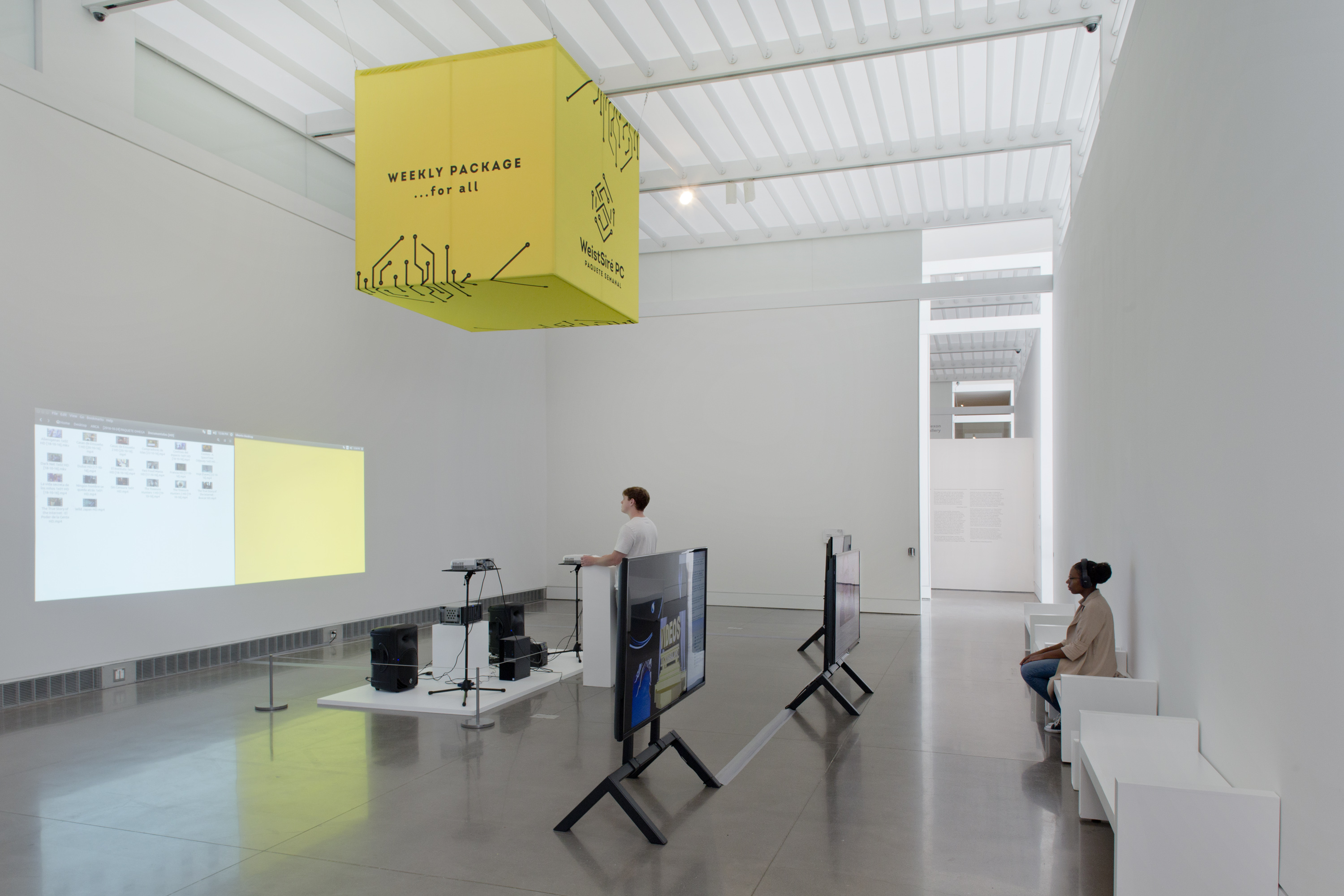
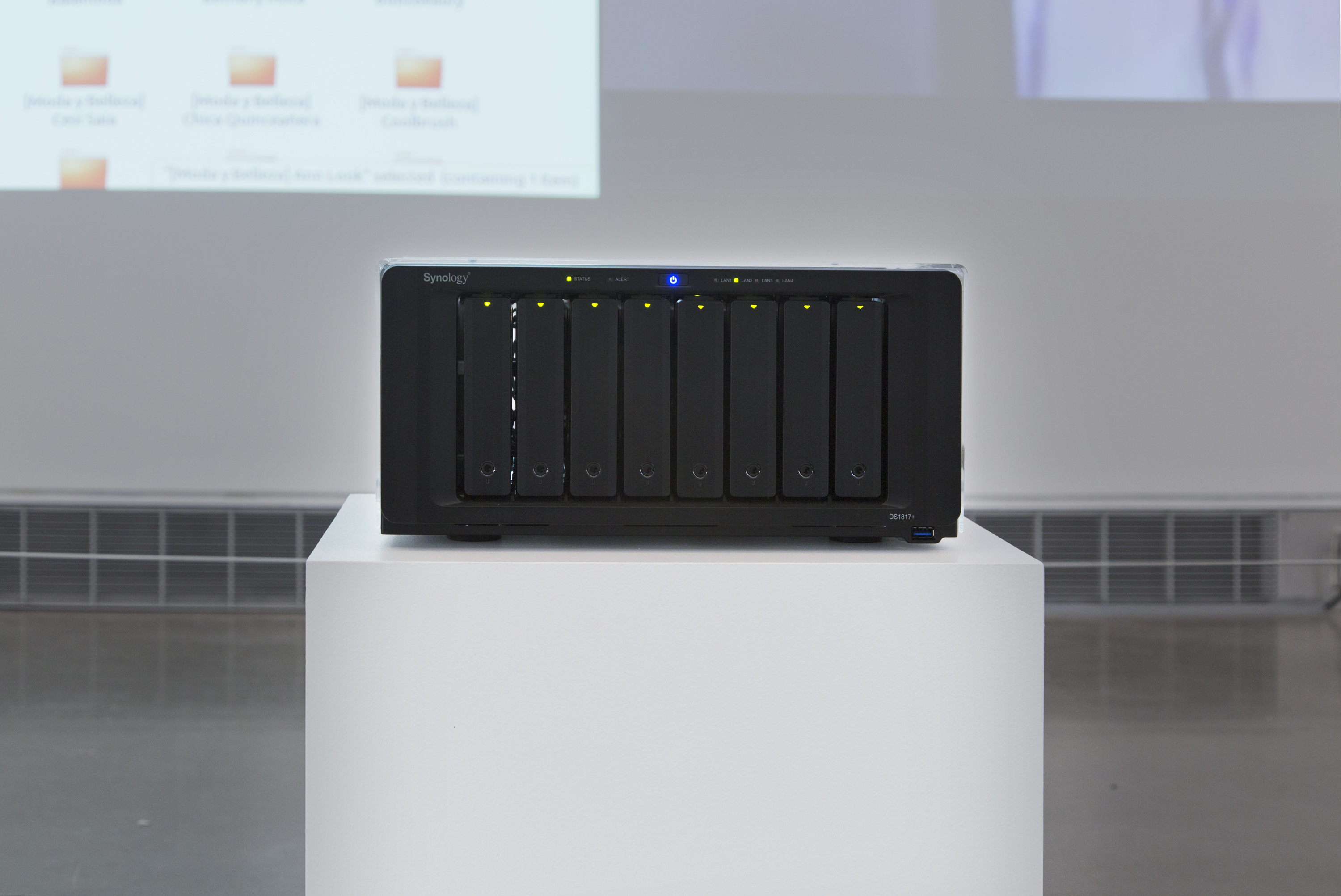
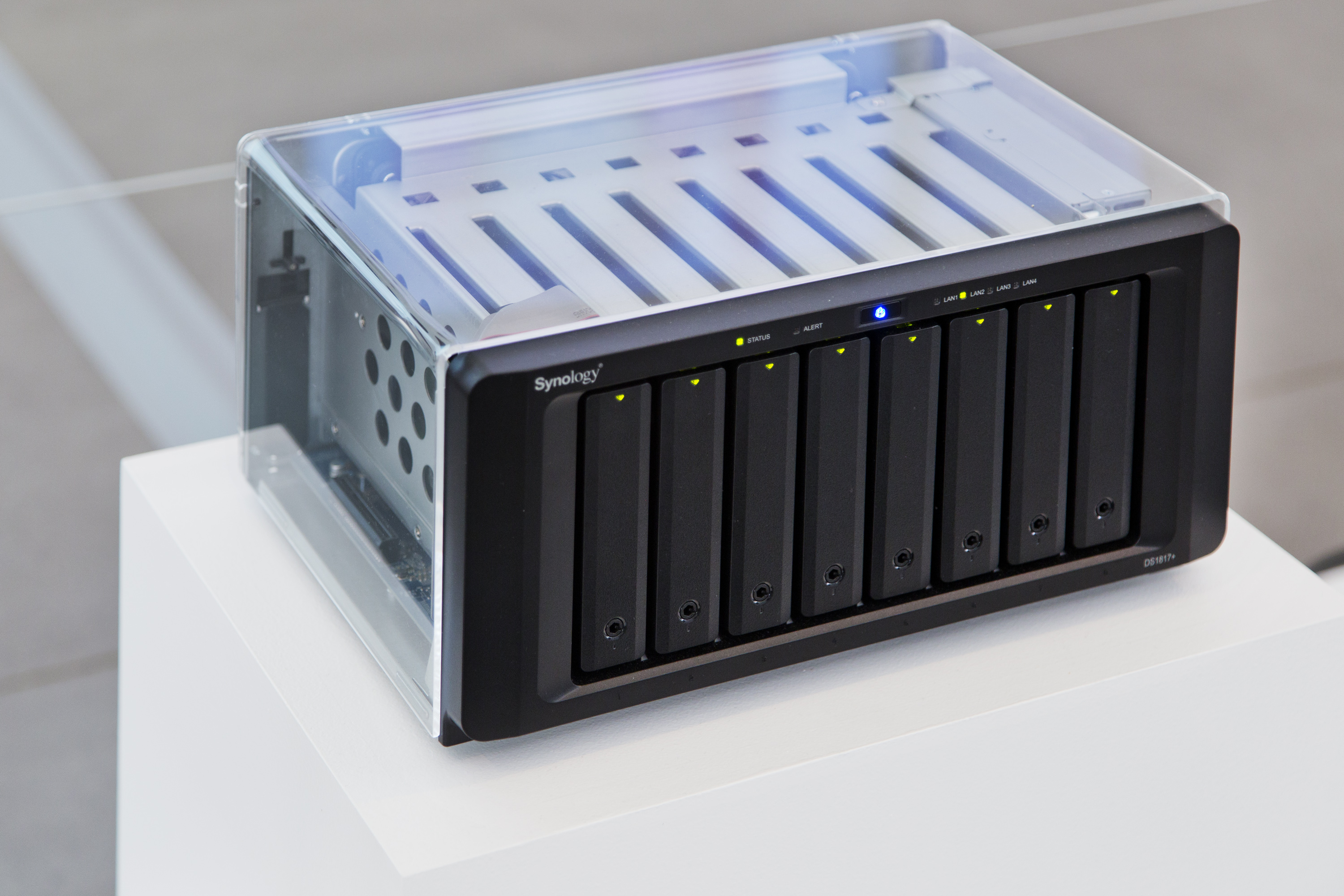
Julia Weist and Nestor Siré
ARCA, 2016-2017
Mixed material installation including two-channel digital projection, interactive custom digital operating system,
64TB network attached storage device, three-channel digital video with sound, 46:30, 26:42, and 35:45 mins & magazines
Installation photos: Hai Zhang
ARCA presents El Paquete Semanal in its current form and within the lineage of Cuban media circulation. Its centerpiece is an interactive archive of 52 weeks of El Paquete—the only existing record of this ephemeral phenomenon. Three monitors show the artists’ process in developing this archive and embedding themselves into the Paquete system. These range from documentation of the trafficking of Paquete hard drives and a wide variety of content created especially for the platform, to the artists’ own video filmed with the actor Mark Ruffalo (part of an ongoing series) for the Paquete folder, !!!Sección A R T E (!!!A R T Section) and responses from users. The video was first distributed as an exclusive feature in the OMEGA matriz, whose organizers edited the work slightly to ensure Ruffalo’s statements could be considered devoid of political content.
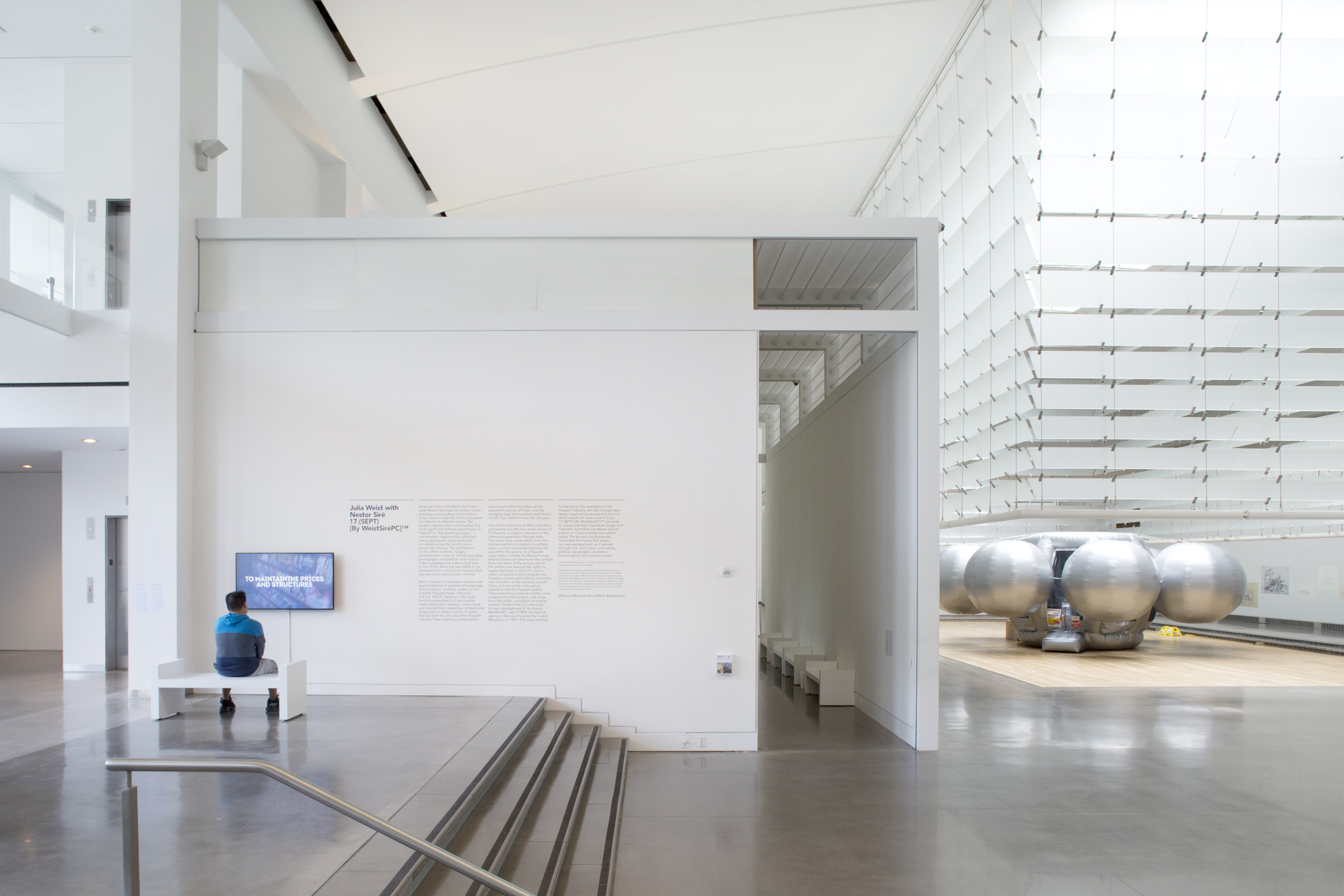
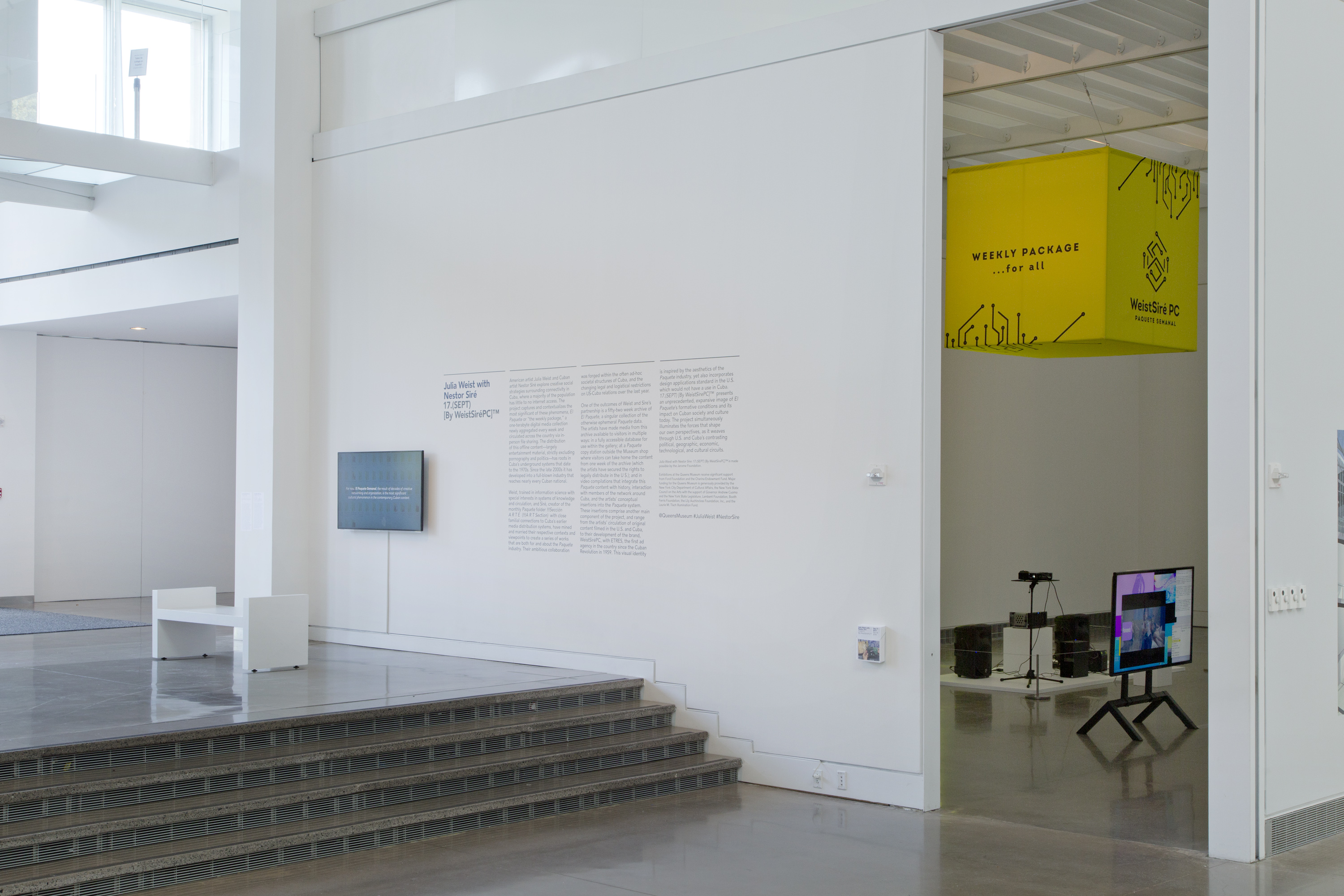
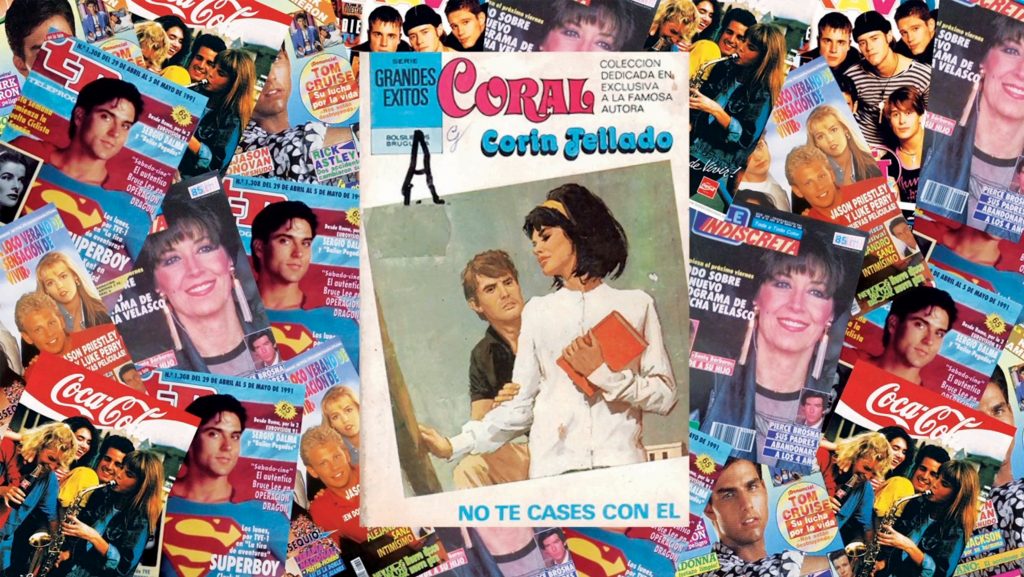
Julia Weist and Nestor Siré
Infomercial, 2017
Single channel video with sound, looping in English 16:48 mins., and Spanish 19:32 mins
Produced in collaboration with ETRES. (Watch here.)
ETRES is Cuba’s first ad agency since the Cuban Revolution in 1959, and the platform for their work is El Paquete Semanal. Weist and Siré contracted them to create a motion-graphics “infomercial” illustrating the historical, social, and economic conditions that led to El Paquete. The system’s roots extend to the 1970s, when after more than 10 years of full governmental control of media, an underground novel rental industry was developed, assuming a national exchange network. This network evolved to circulate new media: VHS tapes beginning around the late 1990s, and DVDs toward the mid 2000’s. Finally, El Paquete Semanal took advantage of the increasing presence of satellite TV antennas to access pirated media, the availability of personal electronic devices, and the emergence of a small number of institutional internet connections. While the digital copy-system is technically illegal, it is tacitly permitted through non-enforcement by the government.
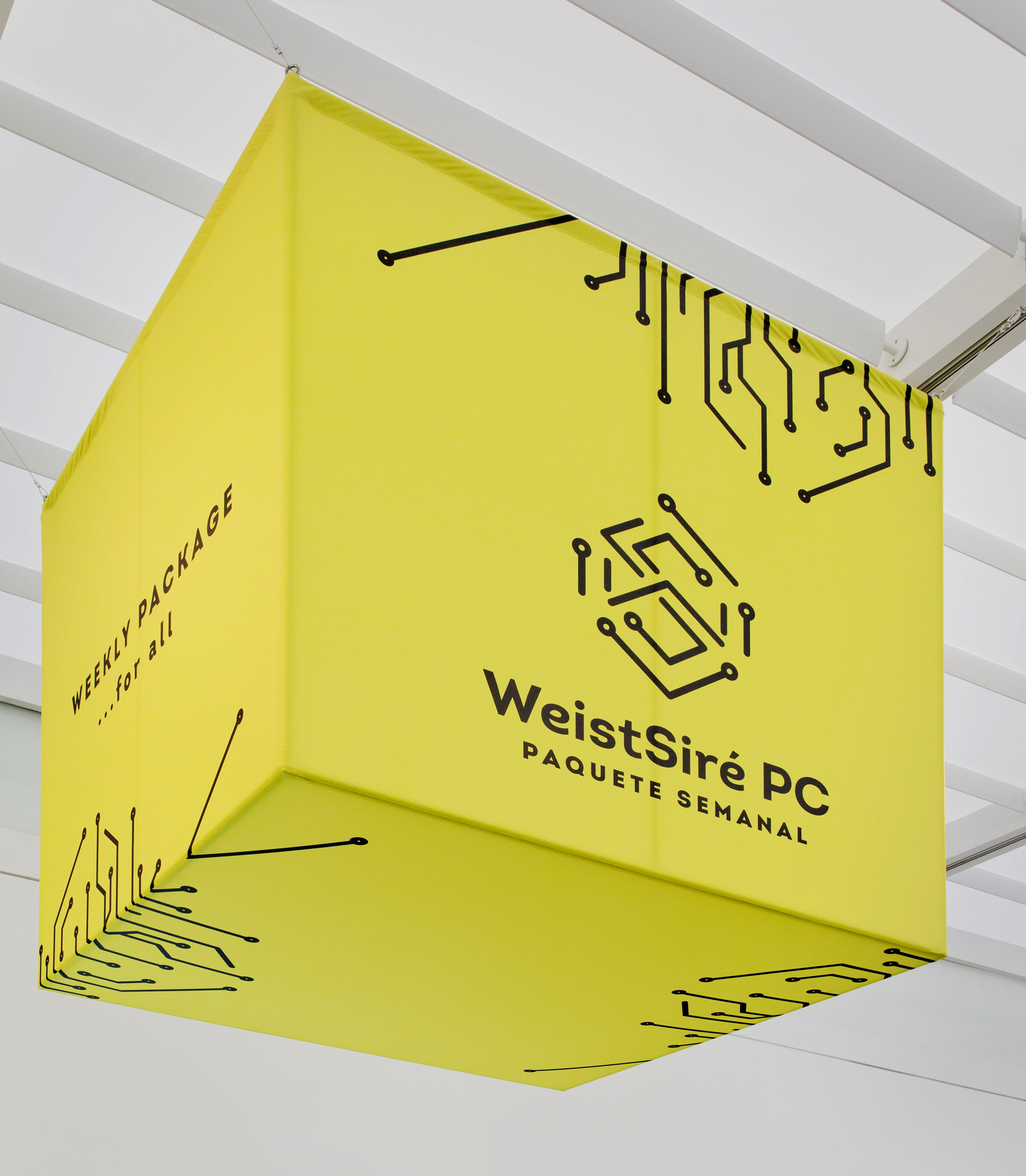
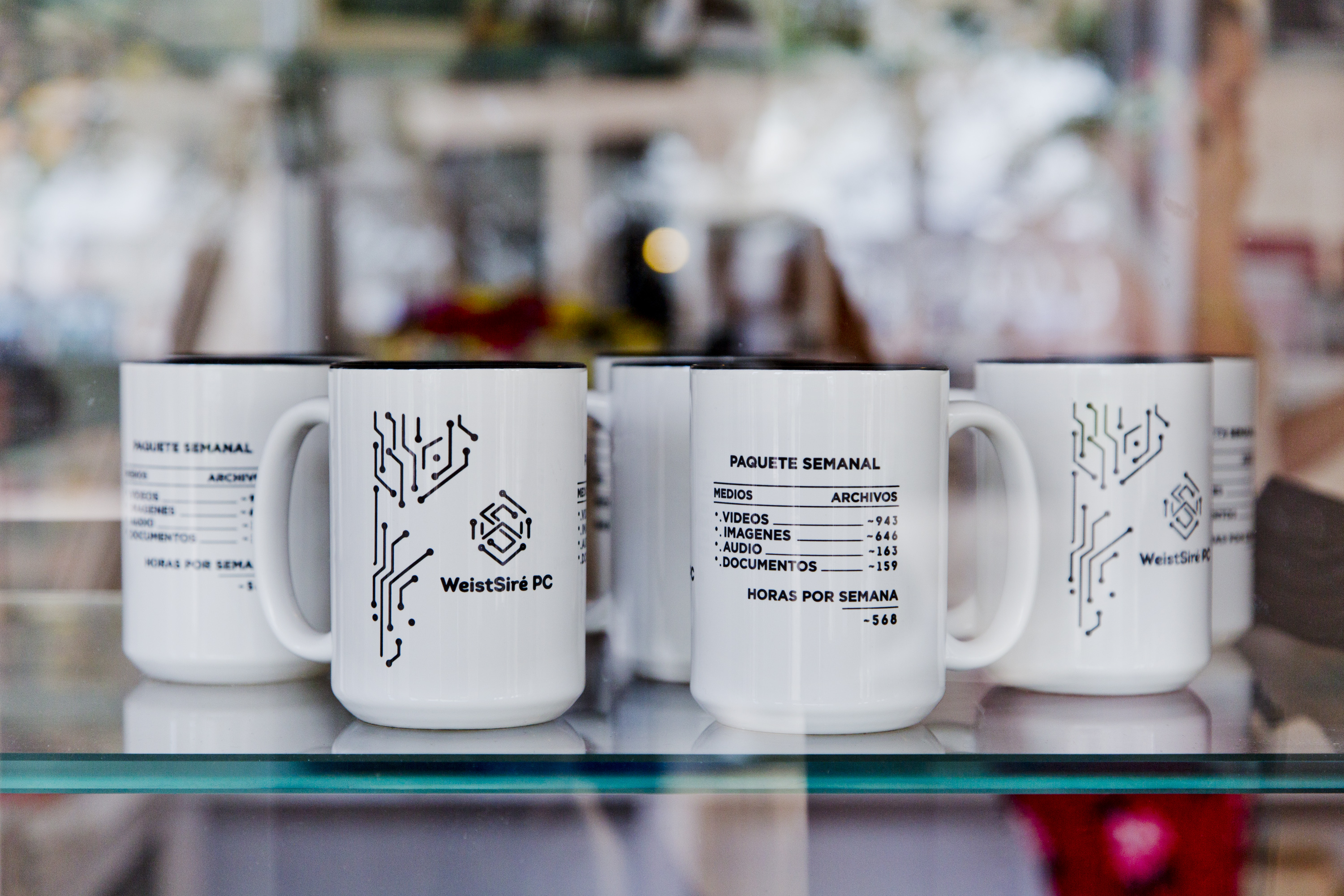
Julia Weist and Nestor Siré
Promo Manual, 2016-2017
Custom advertising concept and material including signage, tote bags, coffee mugs, hard drives, and USB drives
Designed by ETRES
Promo Manual was produced with ETRES, Cuba’s first ad agency since 1959. (Before the government legalized regulated private business in 2010, ads were not necessary because the state managed all goods and services.) ETRES developed the first method for distributing ads nationally by using El Paquete Semanal. Promo Manual extends Weist’s longstanding interrogation of the relationship between advertising and public spaces, online and in the physical realm. Working in with a third public space—the offline digital platform—the artists and ETRES created a brand, WeistSiré PC, that references Paquete content-aggregation studios, or matrices. The logo saw many iterations as they refined its attributes—using elements that refer “to the copying of data and information” and “to the Paquete as a package.” Advertising in public space is not permissible in Cuba and the large-scale signage on view is ETRES’ first design of this kind. A full manual of the design’s development is available here.
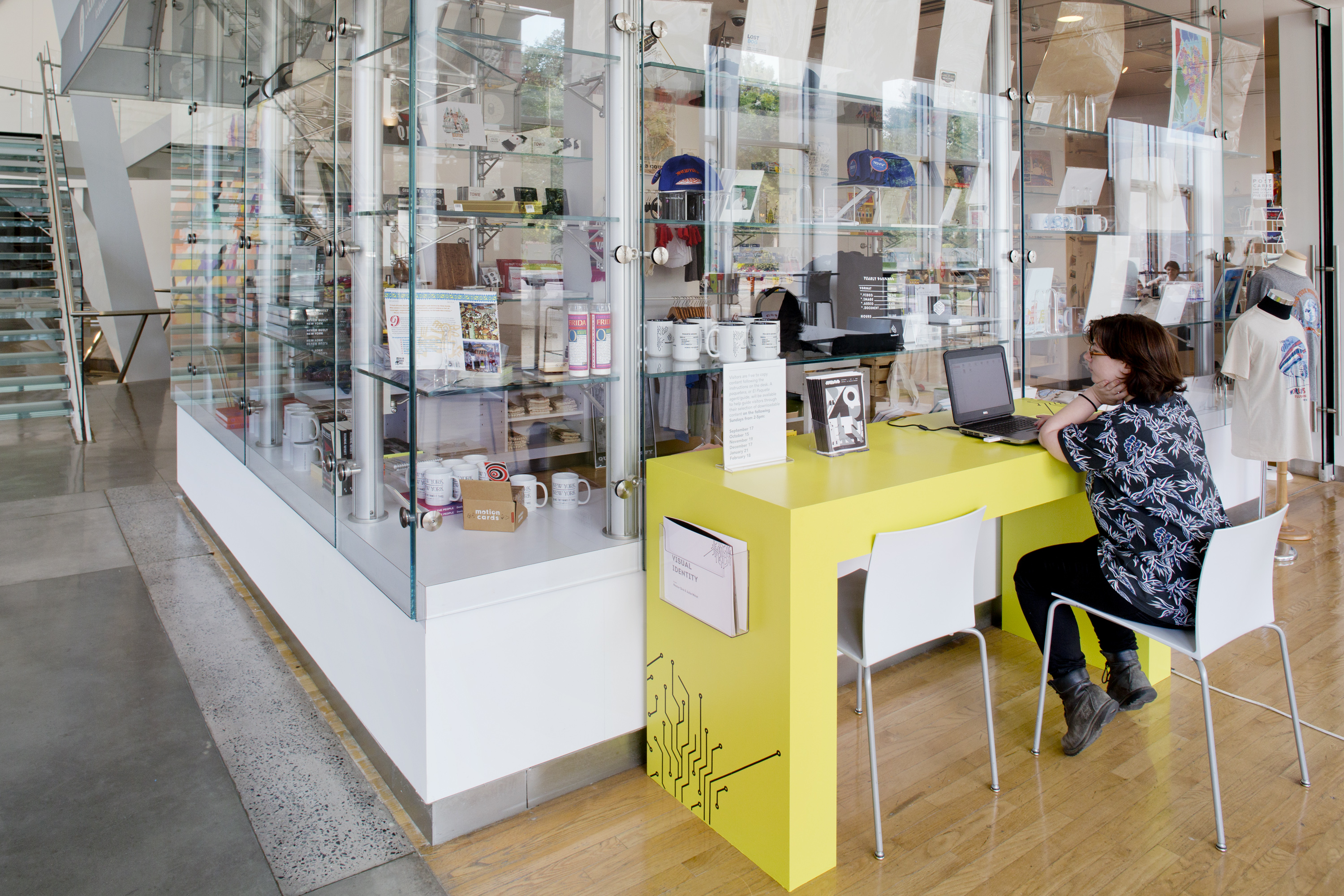
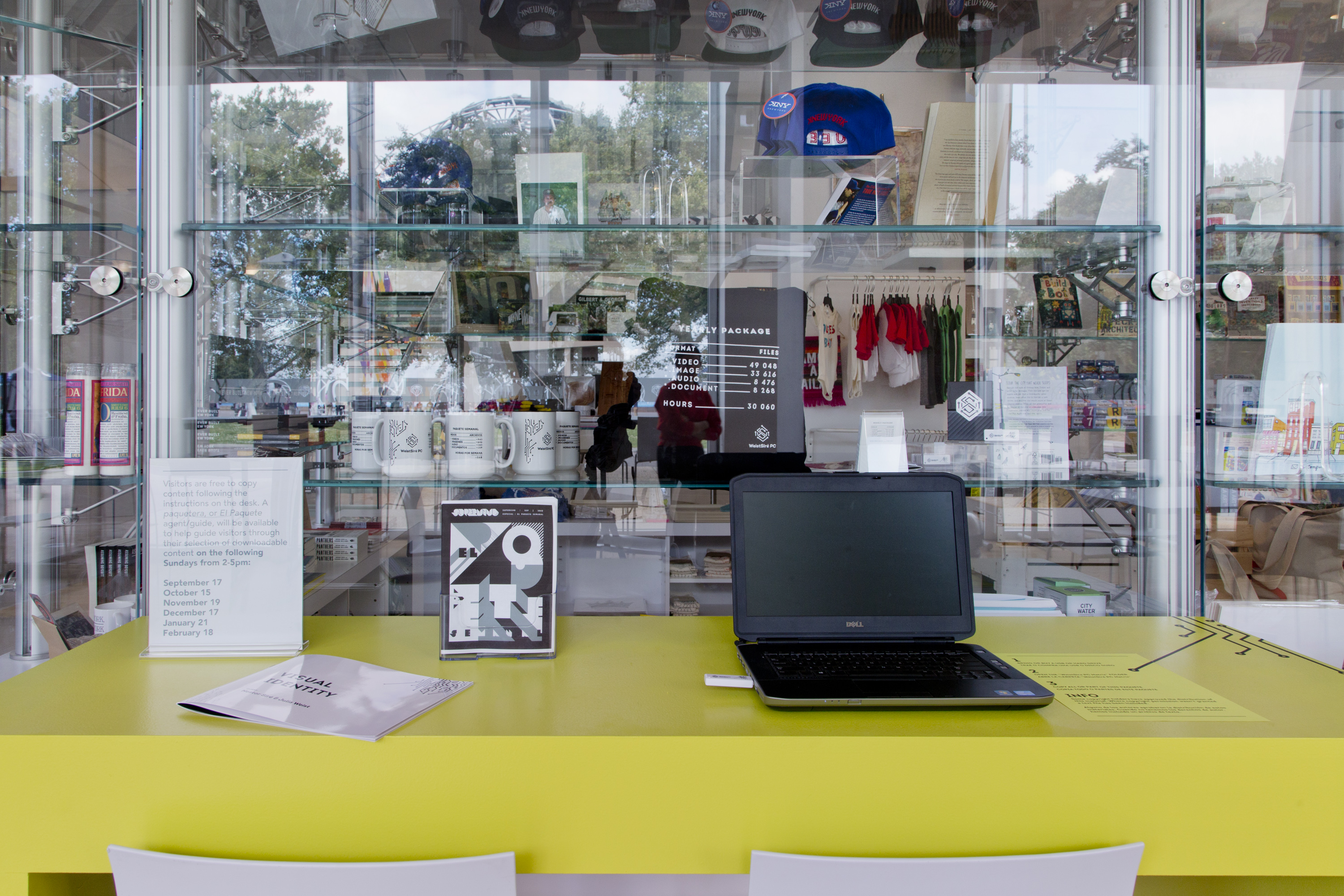
Julia Weist and Nestor Siré
WeistSire PC [Matriz], 2016-2017
Downloadable digital directory of files
124.76 GB
Weist and Siré have also produced a catalog of Paquete content, free for the public to take. In order to create this “legal paquete” the artists sent thousands of emails to secure permission from copyright holders of content from the week of August 8, 2016 to make this distribution permissible according to U.S. copyright laws.
ARCA [archive]
Unlike previous iterations of Weist and Siré’s paquete archive, ARCA [archive] enables artists and researchers to spend extended periods of time (on their own computers) browsing and analyzing the contents of El Paquete Semanal to develop related work. ARCA [archive] maintains the exact folder structure used by the OMEGA paquete and contains 52 terabytes of media aggregated between August 1, 2016, and August 21, 2017. In addition, ARCA [archive] includes a supplemental folder, !!!Extra, with collections created by the artists during their research and covering the following categories:
— Original content: a complete collection of original content created in Cuba for the paquete, including digital magazines, advertisements, and shows devoted to entertainment bulletins, celebrity gossip, and topical banter.
— Matrices: an archive of the promotional logos of Cuban distributors, or matrices, ranging from 1980s VHS rentals to DVD vendors to the Paquete Semanal studios.
—!!!A R T Section: a complete archive of the artist projects presented in !!!Sección A R T E, a project by Siré to circulate contemporary art in an eponymous folder as part of the paquete.
—El Paquete Semanal (national archive): a collection of content and screenshots that documents the architecture of folders of every sub-matriz, or regional distributor, in Cuba.
—Selection of photos: a collection of high-quality images related to El Paquete Semanal, including photos of the PCs used by matrices and of boxes that are built by hand to transport hard drives from one city to another.
–Triple Canopy, September 2018
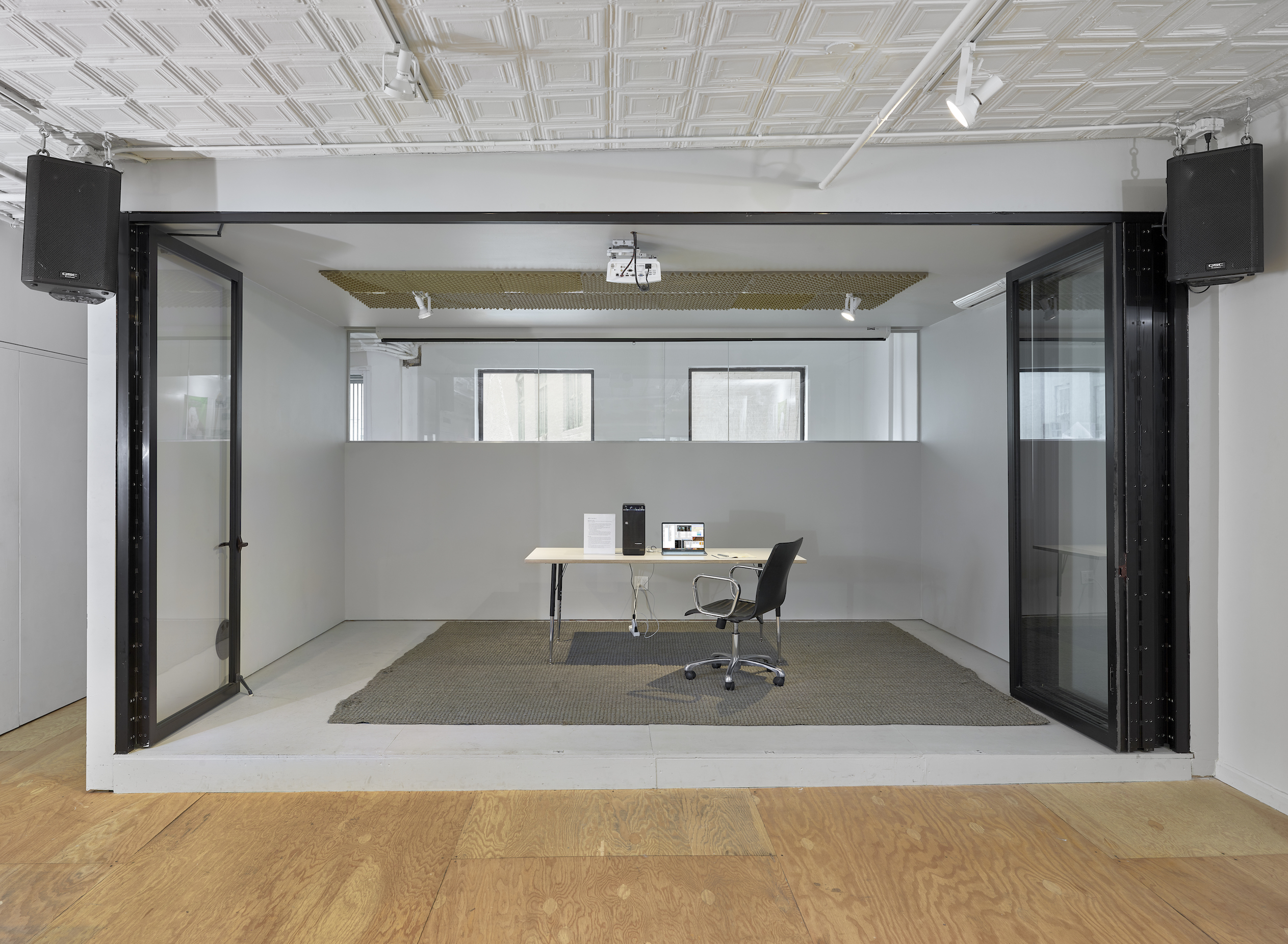
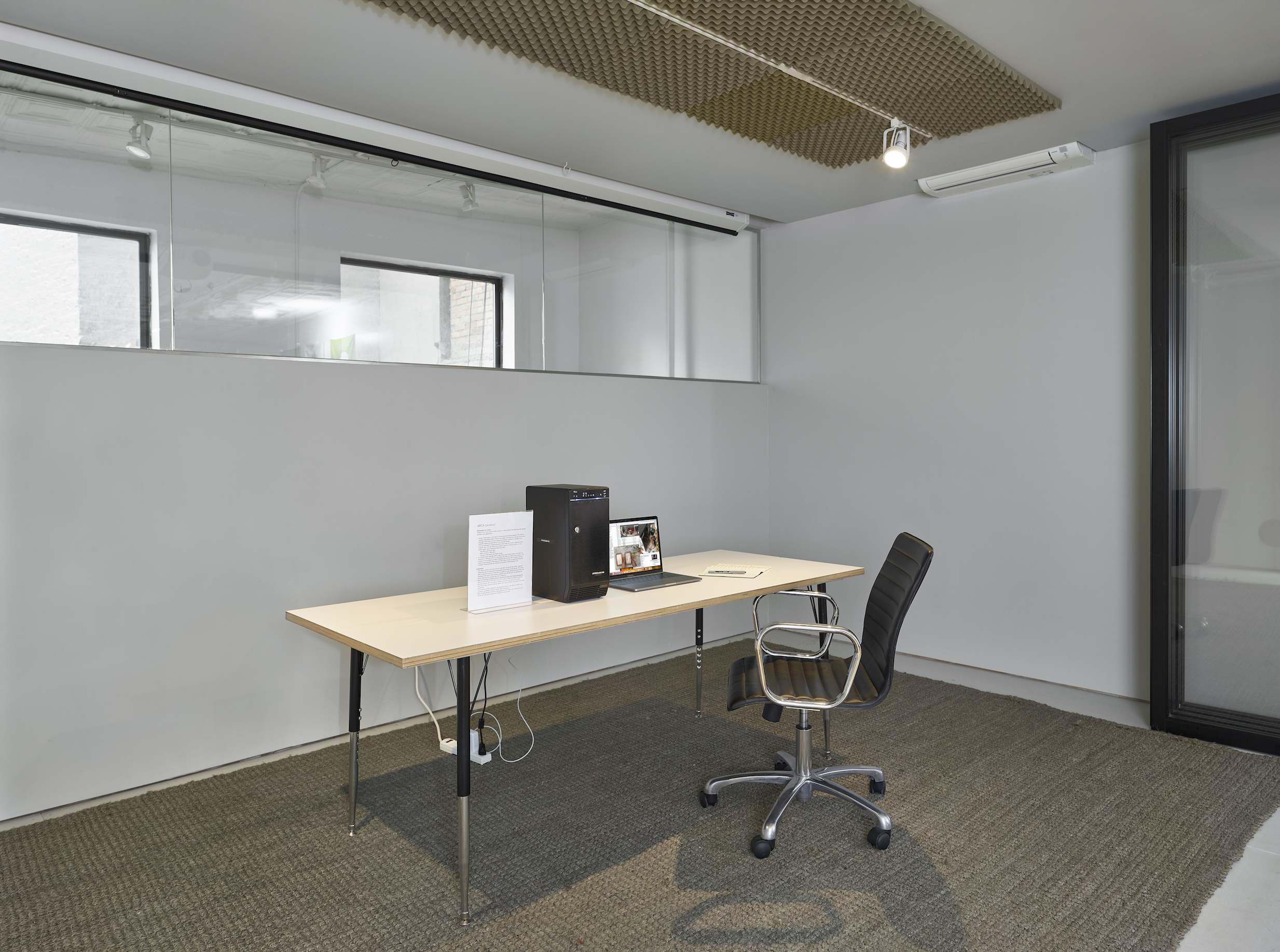
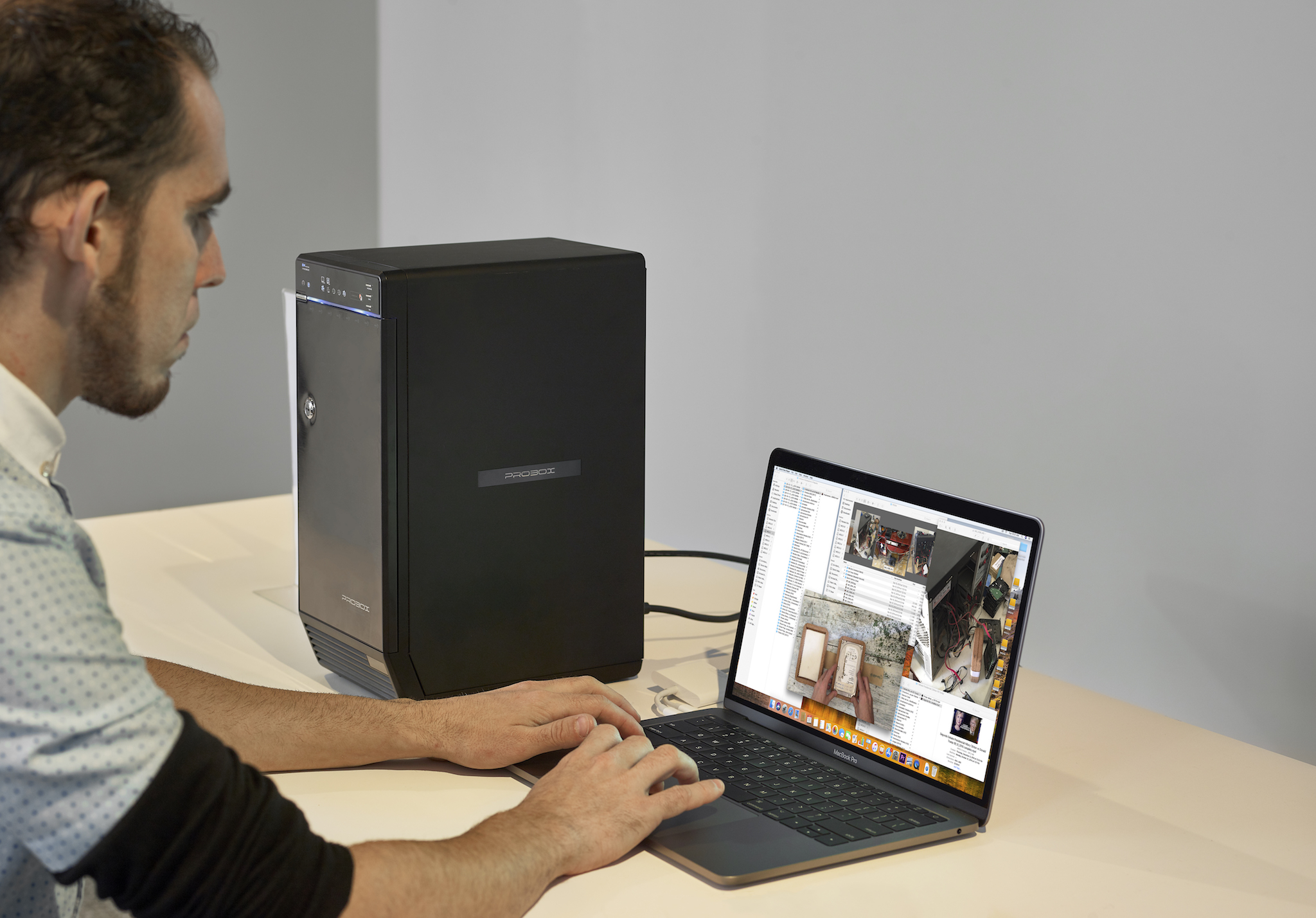
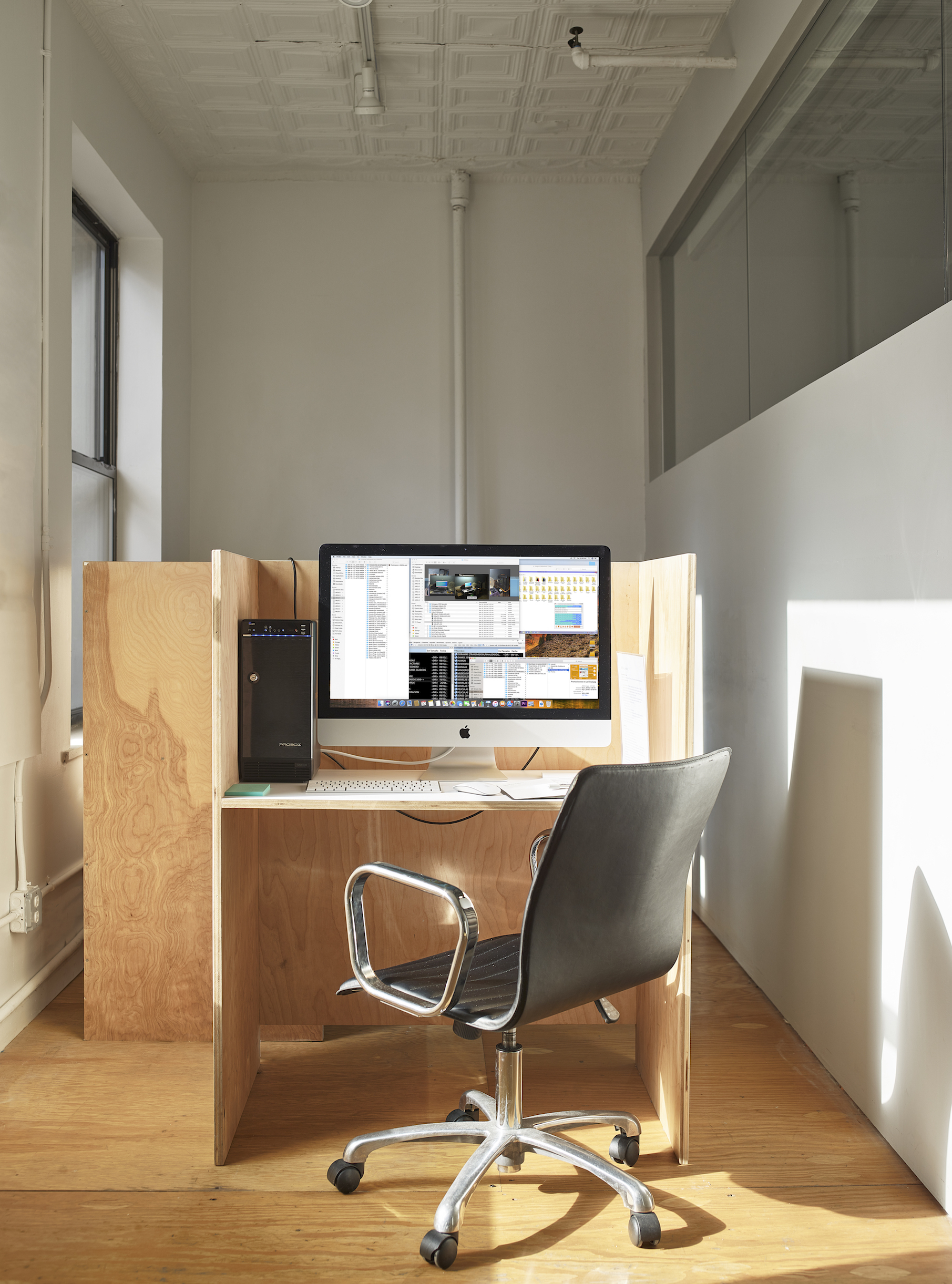
Julia Weist and Nestor Siré
ARCA [archive], 2018
64TB hard drive containing a digital archive of files
13.85″ x 10″ x 6″
Installation photos: Andy Romer
!!!Sección A R T E [No. 11+Rhizome]
!!!Sección A R T E has many things in common with Rhizome’s The Download, first and foremost that it’s meant to be experienced offline as a digital package. Whereas for The Download this disconnection is a symbolic construction for curatorial and artistic purposes, for !!!Sección A R T E it’s a requirement borne from extensive restrictions on internet access. There are more subtle similarities as well, including an embrace of multi-window presentation and visible technical intention—everything from file naming to directory architecture. Unlike the broader Rhizome platform, !!!Sección A R T E exists within a digital environment but is circulated through physical contact. Material cannot rely on links or streaming and there is no access to previous months’ content. No tools exist for determining scope or audience numbers in quantitative terms. Audience interaction is difficult but !!!Sección A R T E does have an email account which can be contacted with request for topics and materials to be included in future editions.
This month we’ve developed a special !!!Sección A R T E that takes into account these intersections and deviations of El Paquete and The Download. This bilingual edition was produced as part of our ongoing collaboration and as with our other works merges the contexts of our artistic lives in New York and Havana. Julia gathered projects, publications, and announcements by international artists who are familiar to Rhizome regulars—Tyler Coburn, Caroline Woolard, and David Horvitz, to name a few. Nestor gathered material as usual for the section from the Cuban context and beyond, including a special work developed by the brilliant Yonlay Cabrera, whose project !Descargas de todo un poco (2014-2017) is included in the la C A R P E T A =galería= this month. In his project, Cabrera explores the strategies he’s developed since gaining limited access to the internet for the first time five years ago. He shares a largely complete chronological collection of the web material he’s chosen to download amidst constraints on connectivity as a “record of the evolution of my thinking and intellectual development seen through the information I have referenced.”
–Rhizome, January 2018
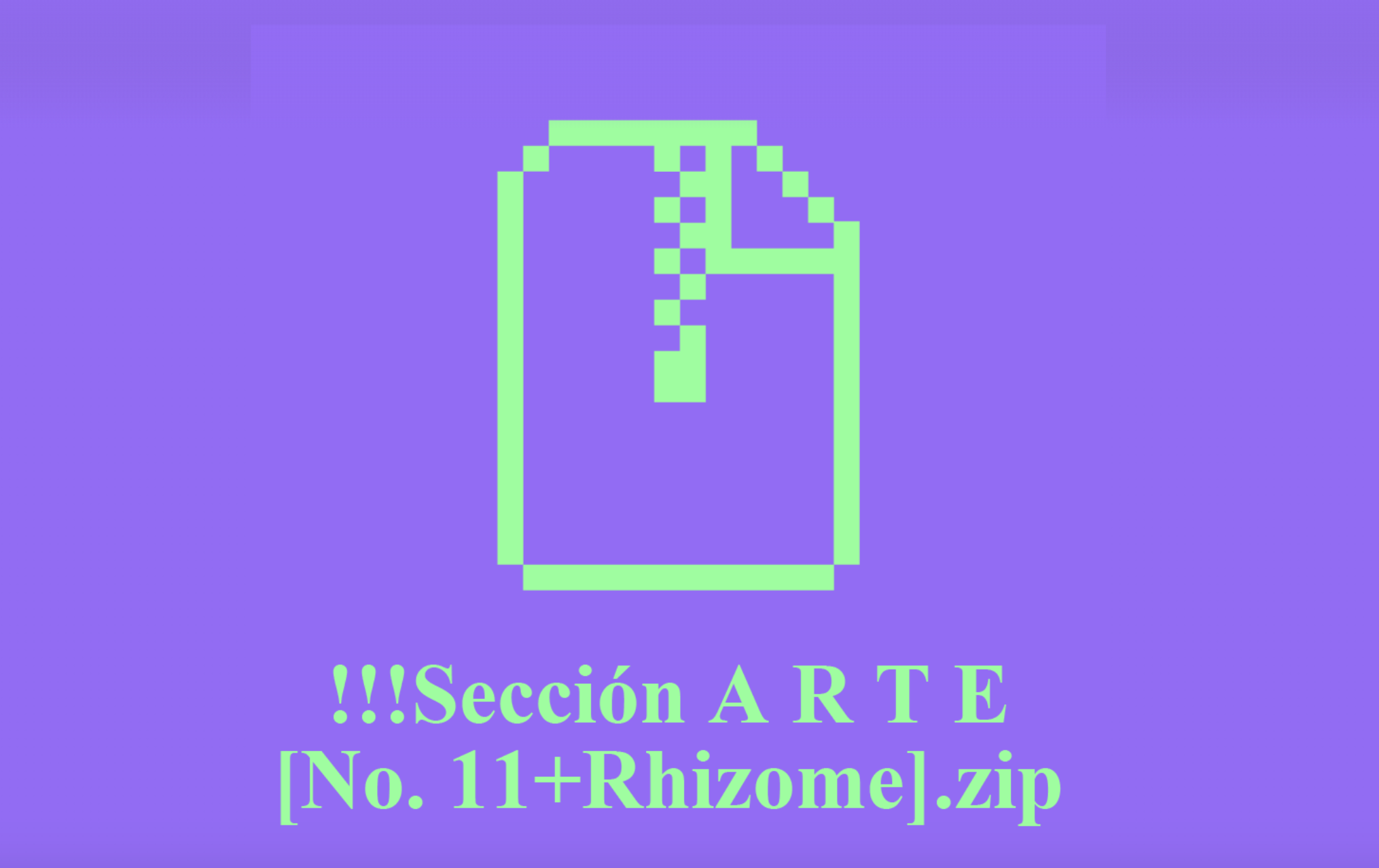
Julia Weist and Nestor Siré
!!!Sección A R T E [No. 11+Rhizome], 2017-2018
Downloadable digital directory of files
4.43 GB
Additional Installation Shots
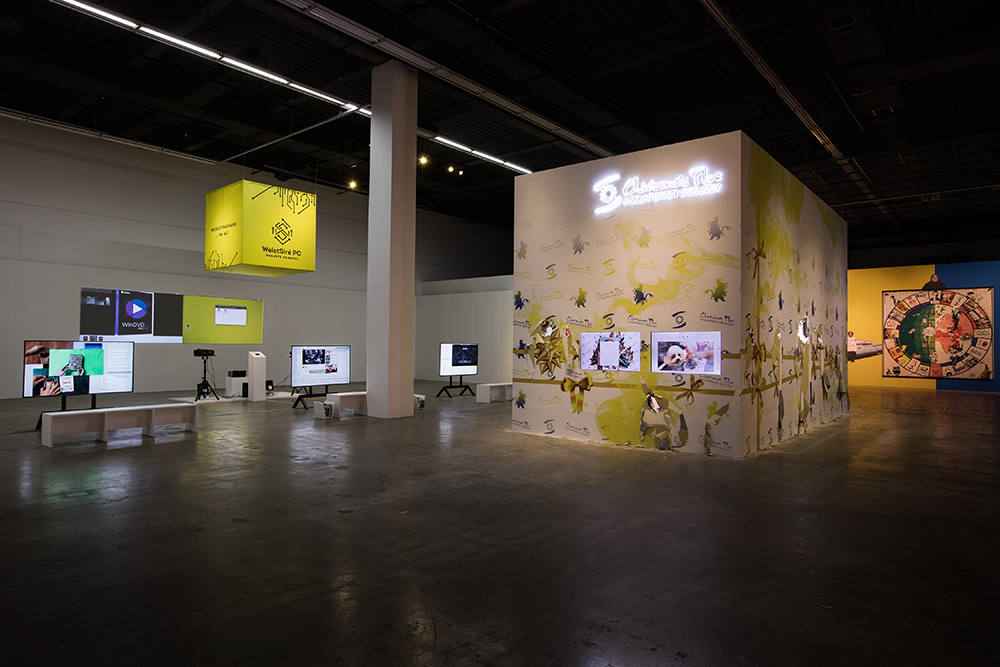
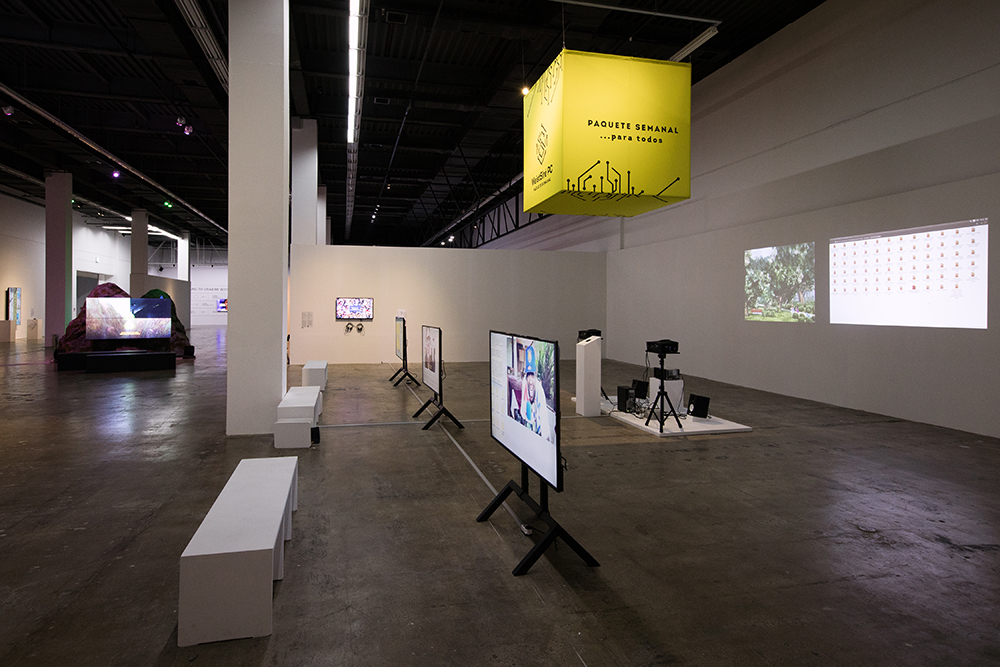
Imagined Borders, Gwangju Biennale (South Korea, 2018)
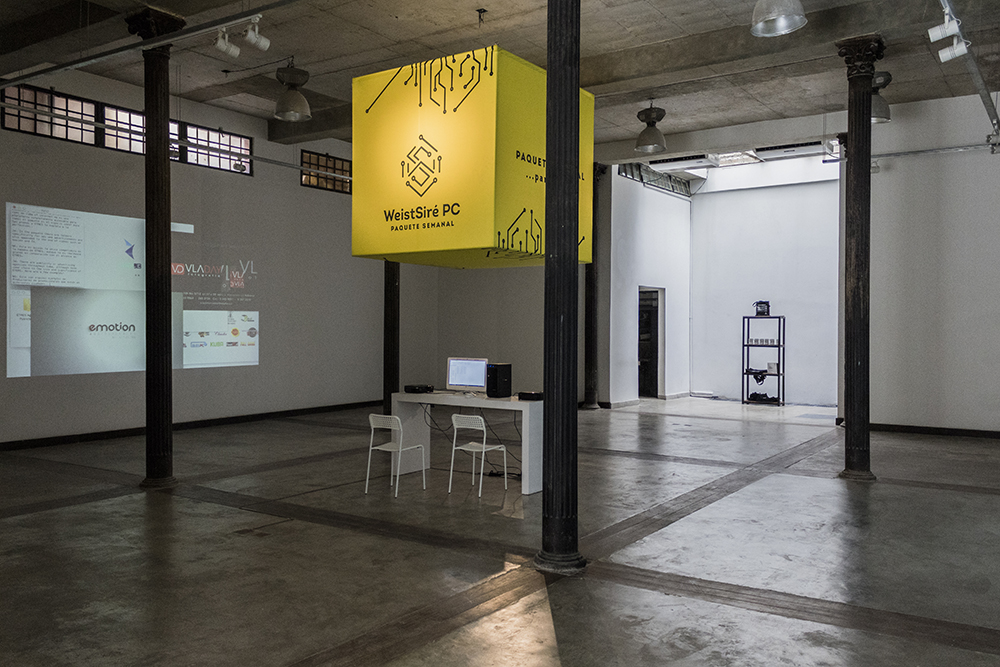
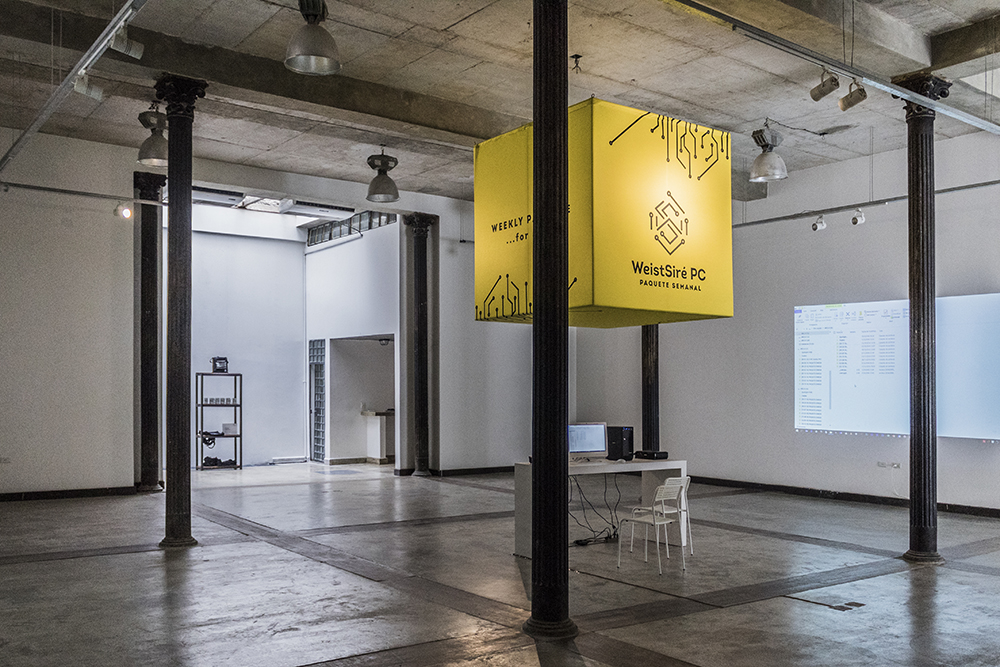
ARCA [archive], Gallery Gorría (Cuba, 2019)
